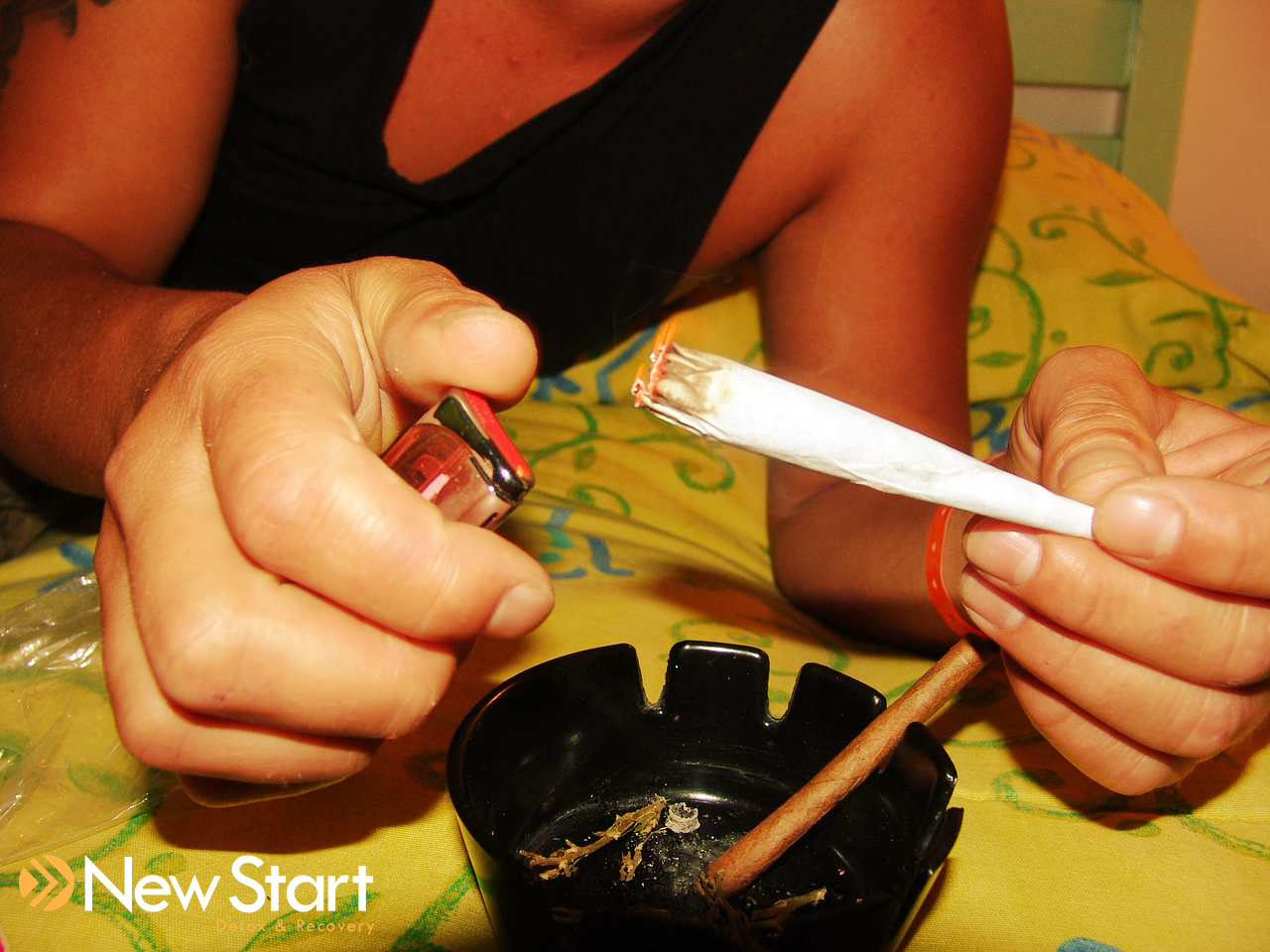There are many controversial opinions about smoking marijuana as a recovering addict. Is it okay to do? Will it make me relapse into my drug of choice from before? Would I still be sober if I smoked?
With Marijuana legal in most states, it’s no surprise that in 2016, there were 22.2 million people in America using it in just July, alone. People consume marijuana on daily basis. But, just like any other drug, it’s known to be addictive.
Smoking Marijuana in Recovery
Whether you are in recovery from hard drugs or from alcohol, the main point of recovery is getting your life back. So you can be free, make goals and live a life away from addiction. So, does that limit the use of marijuana, too?
Marijuana, also known as pot, weed, grass, Mary Jane, bud, and various other terms, is a “greenish-gray mixture of the dried, shredded leaves and flowers of Cannabis sativa, the hemp plant.” You can eat it, smoke it, or drink it. Doctors prescribe marijuana for pain, muscle spasms, nausea from cancer, poor appetite, weight loss, seizures, or Crohn’s disease. However, this drug is also highly used as a recreational drug.
Risks of Marijuana in Recovery
This blog isn’t to tell you what you should and shouldn’t do. But with these resources, I hope you make the best decision for yourself.
You might be thinking, if you were addicted to the harder drugs like meth or heroin, then marijuana will be nothin’. Marijuana is a lighter drug, widely accepted throughout the world. Worst comes to worst, you’ll become stoned, hungry and then take a nap.
BUT
Marijuana is a little more complicated than that. It’s an addicting drug, and it’s linked to increase consumption of other drugs (nicotine, alcohol, cocaine, and methamphetamine).
Marijuana users are also likely to struggle academically or risk work-related accidents and 30% of marijuana users meet the criteria of some degree of marijuana use disorder. It can also result in side effects such as dizziness, drowsiness, short-term memory loss or euphoria.

You might meet people that smoke marijuana in recovery and they are getting by. You might also meet people who are super against smoking weed. It’s important to understand the risks; relapse, addiction, drug, side effects… You wouldn’t technically be “sober”, if you’re still consuming drugs. But drugs can be a wide variety of things; coffee, sugar, steroids, ecstasy. If someone is consuming chocolate on regular basis, does that mean you’re allowed to smoke marijuana?
You Do What’s Best for You
I’m not here to judge you, or tell you what to do. This is your body, life, and decision to make. I do request that you understand you could be risking your sobriety with it. You could end up relapsing, and fall back into your drug of choice. Is smoking marijuana that important for you to risk your recovery for?
You know the answer. You know what’s best for you. There might be consequences, and it could jeopardize your recovery, but if you truly think that you won’t be triggered, you do you. If you feel like there’s nothing that can go wrong, and you’re strong in your recovery, you make your decision.
Benefits of Marijuana
-
Increase Lung Health
There were studies done which found that in a course of 20 years, marijuana users showed an increase in lung capacity, compared to Tobacco smokers which lost function in their lungs over time.
-
Helps Veterans Suffering from PTSD
Marijuana is approved to treat PTSD in some states already. PTSD is the number one reason people get a medical card, as it helps regulate the system that causes fear and anxiety.
-
Decreases Anxiety
Many people use marijuana to reduce their anxiety. It can also help relieve pain and suppress nausea (also reasons people use it in Chemotherapy). It can also raise anxiety if you take too much, so be careful.
-
Can Help Cut Back on Drinking
Marijuana is actually safer than alcohol, but it does come with risks as I mentioned before. There are people who use marijuana as a substitute for alcohol or drugs. But there are also people who become dependent on marijuana, which can result in an unhealthy addiction.
If you or someone you know is ready to seek help from an addiction, please call us or chat live on our website. We want to help you with your recovery. Call us at 855-737-7363 or start a chat with us.

